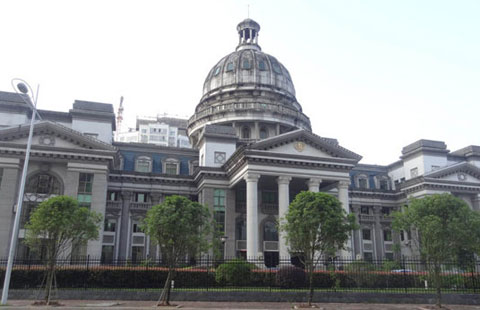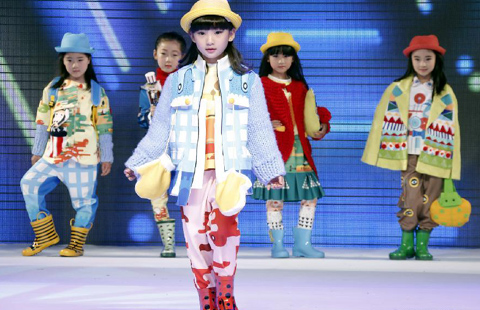Chinese students abroad face academic pressure: experts
Updated: 2015-06-02 11:14
By Zheng Xin in New York(China Daily USA)
|
||||||||
Chinese students studying abroad may resort to cheating and plagiarizing to succeed academically and because of parental pressure, according to education experts in China and the US.
Their comments in interviews with China Daily followed a report last week that said 8,000 Chinese students were dismissed last year from US high schools and universities, with 23 percent kicked out because of cheating and plagiarizing. That was the second biggest reason for dismissal after poor academic performance, which caused 57 percent of the dismissals, according to a report by WholeRen Education, a US-based agency that provides services to Chinese students.
The agency analyzed a sample of 1,657 Chinese students dismissed by schools at all levels in the US from 2013 to 2015.
Plagiarism and cheating sometimes happen among Chinese students who are too eager to get good results, and sometimes because of the influence of others who cheated or plagiarized, Andrew H. Chen, chief development officer of WholeRen Education, told China Daily.
The number of overseas Chinese students reached 459,800 as of 2014, according to China's Ministry of Education.
According to Zhou Chenggang, president of Vision Overseas, a Beijing-based study consultancy under the New Oriental Education & Technology Group, plagiarism and cheating happen in China and the US, but the punishment for such lapses of academic integrity in US are much more severe than in China.
"While plagiarism is considered as 'nothing of a big deal' leading to at most a verbal warning among many Chinese students, it is more of a felony that sometimes ends up academic terminal in US," he said in an interview.
Many Chinese students studying abroad want to take a short cut and graduate with a degree and a job offer as quickly as possible, Zhou said. But when a student becomes too focused on results, he might do whatever is necessary to reach for his goal regardless of rules and consequences, he added.
When Chinese students can barely catch up with their Western peers within a short period of time, the easiest way to catch up in grades is through cheating and plagiarism, Zhou said.
According to the WholeRen report, because the Chinese educational system doesn't attach too much emphasis to teaching students how to cite others' academic work, many Chinese students in the US simply copy and paste research done by others, resulting in plagiarism.
"From my experience of 30 years as a professor in the United States, Switzerland, and China, it appears that plagiarism is much, much more common in China than in the US or Europe," Jing Li, assistant director of the Asia-Pacific Rim International Study Experience at the University of Southern California's Rossier School of Education, was quoted by US-China Today as saying.
Zhou said the best policy when applying for a US college is "best fit", choosing the academic program that best fits a student's capabilities and abilities rather than seeking to get into a top school where they may not succeed.
"One can bring out his best in a top 20 school, but might lose his confidence and barely survive in the top three, but the sad thing is many parents still want their kids to be part of the ace schools despite their capacity," he said. "The students should work at their own pace and advance step by step."
Zhou's comments were echoed by Si Mingxia, head of the graduate and undergraduate department of the Beijing-based New Oriental Vision Overseas Consulting Co Ltd, which provides professional counseling and recruitment services to Chinese students seeking to study abroad.
"Many Chinese parents have elite-school complex, which ends up putting massive academic pressure on their children," said Si. "They usually choose the majors for their children, mostly majors with positive career prospects like financial and accounting majors, rather than following their children's hearts and interest. The job of the consulting companies is to find the school most fit for the child, rather than push him into an elite school he could barely fit in."
Academic dishonesty among Chinese students happens more often in undergraduate and graduate studies, while students in high school get dismissed mostly due to attendance issues, lack of self control and improper behavior, according to the WholeRen report.

Claire Zheng, program director at C2 Education, a New York City-based tutoring program that offers customized curricula for international students in elementary school to high school, said most Chinese middle school students are still used to passive learning in China, where parents and teachers help with most of the time management and supervision.
"High school in the US has three to four hours less class time than in Chinese high schools, but that doesn't mean the pressure to study is less than that in China," she told China Daily.
"That only means students need to do a better job in self-study managing, as homework projects usually require a lot of time doing researching on one's own. Students who doesn't plan their work proactively will end up cramming the work at the last minute and might resort to cheating if they fail to meet the deadline."
It's important to have a professional counselor for the younger international students to achieve their academic goal when they first come to the US, she said.
WholeRen Education suggested that Chinese students better prepare themselves academically and psychologically before going abroad to study, and work on language barriers and the ability to take care of one's self.
zhengxin@chinadailyusa.com
(China Daily USA 06/02/2015 page2)
- Bridging rural-urban gap in education from start
- Overseas study consultancy offers scholarships to top 5 US universities
- China trying to reach 13 people near MERS patient
- Gaokao countdown begins with incense and prayers
- Children's Day celebrated across China
- Ballet dancers perform at Zhalong National Nature Reserve in China's Qiqihar
- IOC publishes evaluation report on 2022 bids
- MERS-infected S. Koreans rise to 18, no tertiary infection reported
- S. Korea to belatedly ban MERS suspects from leaving country
- Chinese rifle shooters shine at Munich World Cup
- Cameron in Paris to push for EU reforms
- Volcano erupts on southern Japanese island

 Ten injured in crane accident in Manhattan
Ten injured in crane accident in Manhattan
 Forum trends: Becoming 'a little more Chinese'
Forum trends: Becoming 'a little more Chinese'
 Giraffe survives for five years with zig-zag neck
Giraffe survives for five years with zig-zag neck
 World's 15 most valuable brands of 2015
World's 15 most valuable brands of 2015
 The world in photos: May 25- 31
The world in photos: May 25- 31
 Solar plane departs from China to Hawaii
Solar plane departs from China to Hawaii
 Modeled on the United States Capitol
Modeled on the United States Capitol
 Highlights of National Children's Wear Design Contest
Highlights of National Children's Wear Design Contest
Most Viewed
Editor's Picks

|

|

|

|

|

|
Today's Top News
Chinese soldier
gets UN award
Nation's astronauts eager for foreign missions
China committed to upholding peace, stability in South China Sea
Li's trip a watershed in China-Latin America ties
Kerry delays return to US after injury in bicycle crash
Californians turn to Australia to learn how to fight drought
China issues six-point response to US remark on South China Sea issue
Chinese ambassador warns US against escalating situation in S China Sea
US Weekly

|

|